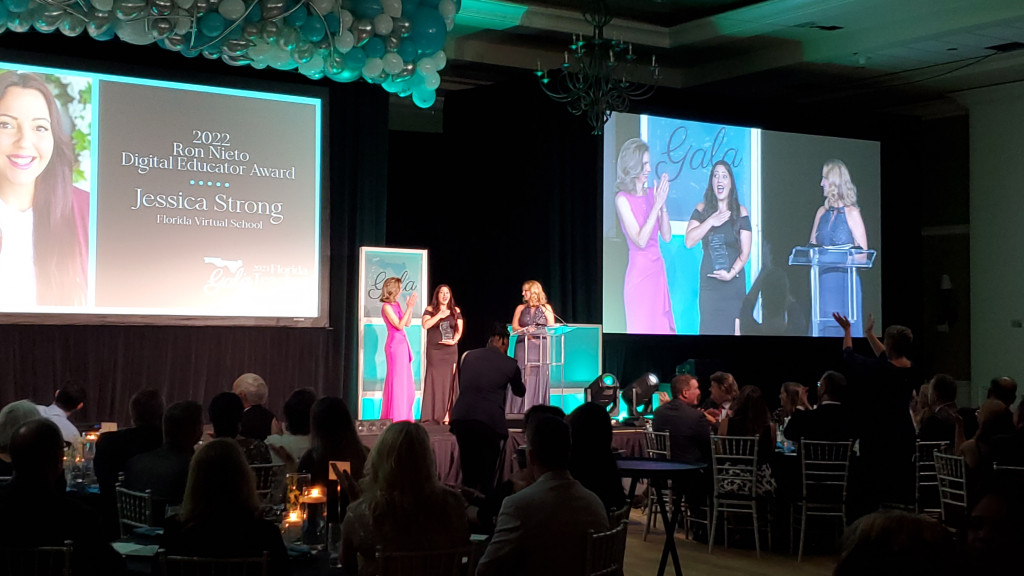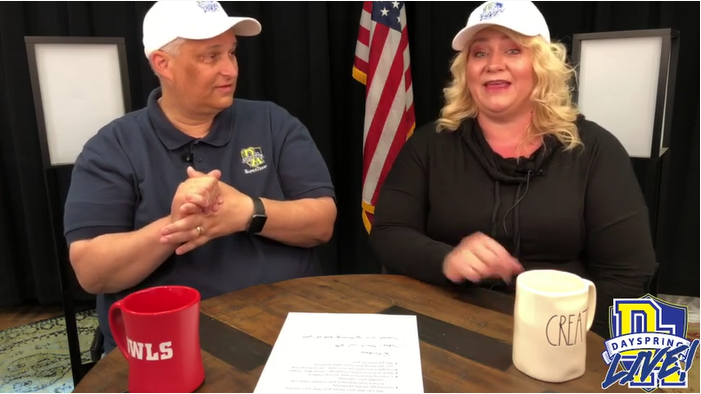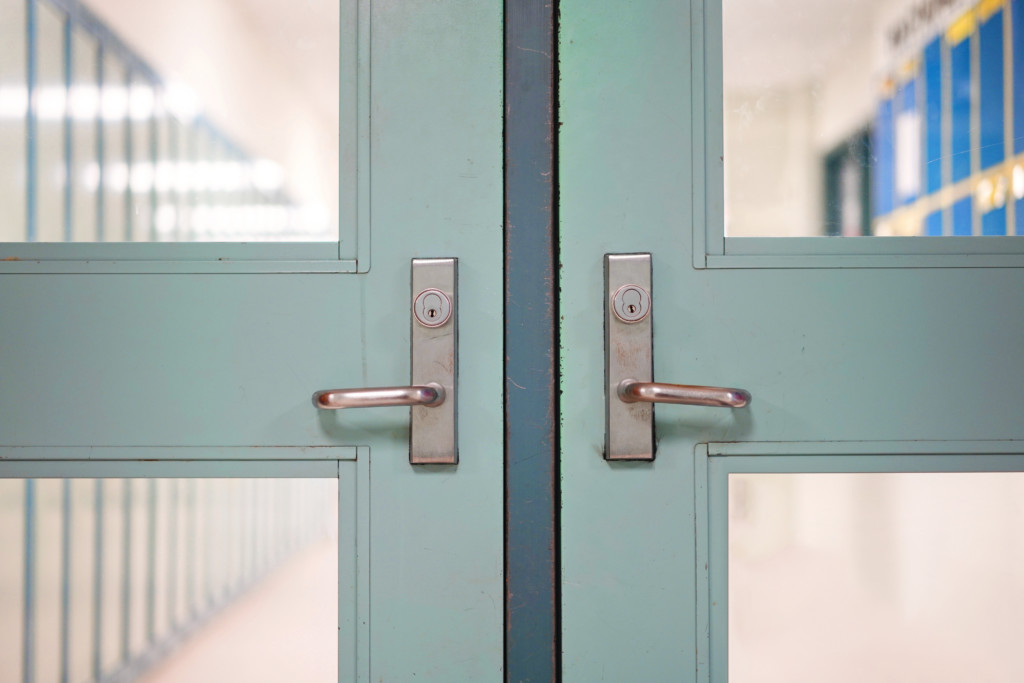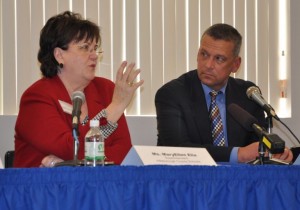This school year, 2024-2025, for the first time, Brevard County students using Florida’s education choice scholarship programs will have a new option: the ability to sign up for online courses offered by Brevard Virtual School.
Brevard Public Schools was the first countywide school district in Florida to offer courses to scholarship families through its virtual school. But more are sure to follow.
Florida law allows scholarship students to access services, including classes, from traditional public, virtual, or charter schools. However, families can’t choose this option if a school is not set up to accommodate it.
 The option has historically been underused. This is beginning to change, however, thanks to a growing interest in innovation among public -school leaders and people in their communities.
The option has historically been underused. This is beginning to change, however, thanks to a growing interest in innovation among public -school leaders and people in their communities.
On Brevard’s heels, the Glades County School District has begun making in-person classes available to scholarship students. Other school districts and charter school organizations are taking similar steps across the state.
History of blurred lines
In Florida, the boundaries between a public school district and the world of parent-directed learning outside the system have long been blurry.
Heather Price, the principal of Brevard Virtual School, has helped lead the charge to make classes available to scholarship families. “I have been immersed in the world of flexible learning since 2008 and am always looking for ways to improve and expand what we can offer to families”, she said.
Brevard Virtual School serves over 5,000 online students, enrolled in approximately 12,000 courses. Some use the virtual option full -time, while others use it to supplement classes at their local public schools. Homeschoolers can also sign up for individual courses.
During the 2023 Florida Legislative Session, House bill 1 passed, making parental involvement a priority. It made every family in the state eligible for an education choice scholarship. It also added a new flexible learning option to the mix: the Personalized Education Program (PEP), a scholarship specifically for students who do not attend school full-time.
The first year, the PEP scholarship was capped at 20,000 students. This school year, that cap tripled.
Price heard buzz among parents that many of her existing part-time students were signing up for scholarships.
She wanted to make sure her school was among the available options.
“We knew that our families who have been with us for many years would be the exact same families who would be interested in what the scholarship offers,” Price said. As a result: “We either need to get on board or we’re going to lose folks who love us, and who we love.”
A foundation of diverse online learning options
Florida Virtual School (FLVS) functions as a statewide school district and has offered publicly funded online classes since the late ‘90s. It has long offered classes to students using private school scholarships.
Florida school districts can create online schools that employ local teachers and use FLVS curriculum and technology. These district franchises provide local flavor and opportunities for in-person meetings, while the statewide FLVS option provides a broader selection of courses. It’s common for online students to take a few classes from each.
FLVS partners with school districts, such as Brevard Public Schools, to support the local franchises.
“It’s a local twist on a statewide program,” Price said. “I’m sitting here in an office. Families can come in and get help. They can participate in our local activities.”
Districts build new organizational muscles
Thanks to the state’s long history of virtual schooling, Florida school districts are used to receiving funding for online courses on a per-class basis.
When they sign up as a scholarship provider, they face a new challenge: rather than reporting students to the state for funding, they must invoice students through the scholarship platform.
This requires districts to ensure correct operational systems are in place, from data systems to reporting.
Price said working through the issues required collaboration from every department in the district office.
The virtual school was a logical starting point to start building those organizational muscles. It had a critical mass of scholarship students, and the logistics of adding online students were simpler than at a physical campus.
But the work may not end there.
Many scholarship families are used to participating in public-school sports or extracurricular activities using Florida’s Tim Tebow law. Some of these electives, like band or drama, have classes associated with them, and districts will want to receive funding for students who take those classes. Other students want access to one-off courses or services at their local public school, including AP classes, career education courses, or state assessments.
Over time, more public schools will come up with new ways to meet the needs of students using scholarships, tapping a new revenue stream and expanding learning opportunities for students.
“We want them to be able to have the best of both worlds,” Price said. “So, they’re a scholarship student, but there’s also a lot of good, cool stuff that public school districts do.”
She added: “We want them to be able to have that choice and flexibility in how they educate their kids while taking advantage of all the opportunities that are available.”

Jessica Strong, a sixth-grade teacher at Florida Virtual School and the first person in her family to graduate from high school and college, received the 2022 Ron Nieto Digital Educator Award.
On this episode, ReimaginED Senior Writer Lisa Buie talks with Jessica Strong, a sixth-grade English language arts teacher at Florida Virtual School, who recently received the Ron Nieto Digital Educator of the Year Award for 2022. Named in memory of Nieto, who served as Florida’s first deputy commissioner of innovation, it is given to a Florida educator who excels at using technology in the classroom to positively impact student outcomes.
https://nextstepsblog.org/wp-content/uploads/2022/08/Reimagined.jessstrong_mixdown-final.mp3
As the only child of a single mom whose struggles had forced her to leave school in seventh grade, Mrs. Strong never imagined she would go to college, much less become an educator. But not only has she become a teacher, but also one of the best digital educators in a state that pioneered high quality virtual education.
“My internship was with FLVS, and it was a unique experience, and I fell in love. I saw how innovative and interesting things can be done with a student who isn’t right in front of you…Students are tech natives, so their natural inclination is to learn and find out things on the computer, so putting education on computers is such a fascinating concept and with a little ingenuity, there’s nothing I can’t do.”
EPISIDE DETAILS:
RELEVANT LINKS
https://blog.flvs.net/inspiring-the-next-generation-2021-22-team-members-of-the-year/
https://store.classroomauthors.com/product/mnv-v6xn

Dayspring Academy secondary school principal Tim Greenier and assistant principal Jennifer Smith address students in a virtual morning assembly, encouraging them to continue focusing on academics in their online environment.
Editor's note: Scroll to the end of this post to watch a portion of Dayspring Academy's virtual morning assembly, in which assistant principal Jennifer Smith encourages students to "finish this year strong."
PORT RICHEY, Fla. – The new, online, morning assembly at Dayspring Academy began one day last week with a montage of smiling teachers, set to theme music from “Saturday Night Live.” The secondary school principal and assistant principal kept it laid-back, with their ball caps and coffee mugs. But a few minutes in, they had a serious message for 350 middle and high school students watching on screens at home.
“School” is different now, but it’s still school. Course work needs to be done. Tests are coming up. We need to finish the year strong.
“I want everybody to know this,” principal Tim Greenier said, clasping his hands for emphasis. “We’re not changing the rigor.”
“You need to have this education to be prepared for next year,” he continued. “If we were to just stop now, none of you would be ready for next year. And it would create a challenge. We’re just not prepared to do that.”
Across America, schools are scrambling to figure out what’s doable and appropriate as tens of millions of students switch at a snap to distance learning. Many have decided to go light on academics.
But not all of them.
Dayspring is a PreK-12 charter school with 935 students, 50 miles north of Tampa. When the closures happened, it already had a good bit of digital tech in its tool belt. It quickly filled gaps with devices and connections, then sought to construct an online environment that could approximate the style of learning, built around the Core Knowledge curriculum, that existed on its four brick-and-mortar campuses.
The result: Class is still in session. Dayspring elementary students alone have four, 30-minute core classes every morning, using Schoology and Google Classroom platforms with teachers and classmates. After lunch, they do about two hours of art, dance and other electives. Time for group projects is worked in. So is one-on-one time with teachers. From 3 to 4 p.m., most of them cluster for school clubs, from Legos to ukuleles.
Dayspring students are still being graded and tested. They will still have final exams and report cards. And if attendance is an indicator of engagement, the school is locked in. It averaged 35-45 absences a day before the crisis. It’s averaging six a day now.
“We don’t expect to skip a beat,” said John Legg, a former state senator who co-founded Dayspring 20 years ago with his wife, Suzanne Legg. “We think we’re going to use muscles we haven’t used before and strengthen them. We’re going to be sore. But it’s because we’re developing new muscles.”
At this point in America’s big experiment, Dayspring doesn’t appear to be the norm. State officials in Michigan decided online learning won’t count towards seat-time requirements this year. State officials in Oregon initially told virtual charter schools they had to shut down. It’s not hard, via this database from the Center for Reinventing Public Education, to find districts that have deemed online learning “optional,” or determined their schools won’t be grading students.
On the flip side, there are districts pushing hard (like this one), and charter schools and other schools of choice doing likewise (like these, these, and these). In Rhode Island, Gov. Gina Raimondo told students: “This isn’t vacation. This isn’t time to chill out at home. This is school. Work as hard and as serious as you would as if you were in real school.”
In the 16 years Dayspring has been graded by the state, it’s earned 15 A’s. Forty-eight percent of its students are low-income; 27 percent are students of color. That’s compared to 56 percent and 39 percent for the district it resides in.
Legg is a rare bird. A former chairman of the Senate Education Committee, he was regarded by members of both parties as knowledgeable, thoughtful, even-keeled. He recently earned his doctorate in education, with his dissertation on early college high schools. (Legg is also a member of the board of directors for Step Up For Students, which hosts this blog.)
It doesn’t seem right to hold up any school as a model right now. The challenges are so huge and varied. Nobody has all the answers. But it also doesn’t make sense to ignore schools, like Dayspring, that continue to aim for learning gains.
In Ms. Speer’s third-grade class this week, 25 students dove into colonial America. Ms. Speer had them post their questions about colonists into a program called Nearpod. Within a minute, what looked like Post-it notes mushroomed across the screen. How did the Pilgrims survive on the Mayflower? Why were they only in North America and not any other country? Did people celebrate any holidays such as Christmas, Halloween, Easter, or even their birthdays?
“Guys,” Ms. Speer said through the screen, “your questions are amazing.”
In Ms. Manczak’s class, 20 fourth-graders learned soil types, contrasted physical and chemical weathering, and were reminded “humous” isn’t “hummus.” Ms. Manczak put on a master class in multi-tasking. She deftly called on students, fed them bite-sized bits of knowledge and navigated a new learning platform without breaking a sweat. Some of her students were still adjusting to mics and mutes and chat functions, but disruptions were minimal.
In sixth-grade history, Mr. Marecki used a unit on the Industrial Revolution as fodder for debate about whether teachers, lawyers, military officers or the CEO of Apple should make the most money. One student argued for military officers: they’re willing to give up their lives to protect others. True, said another, but teachers trained them for success. Ah, but “anybody can grow up to be a teacher,” said a third. “Only certain people can, like, become a CEO.”
Mr. Marecki smiled without raising an eyebrow.
Dayspring is making changes as teachers learn what works and what doesn’t. There’s consensus the middle school classes should be longer than 30 minutes. There’s worry the more advanced students aren’t being challenged. There’s a desire to provide more social engagement, but a realization they just don’t know how yet.
“We’re building this plane as we’re flying it,” Legg said.
Not easy for any school right now. But at Dayspring, sitting on the runway wasn’t an option.
 Florida Department of Education guidelines issued in a memo Thursday encouraging public and private schools to utilize remote learning also are expected to prevent financial disaster for hundreds of private schools accepting scholarships.
Florida Department of Education guidelines issued in a memo Thursday encouraging public and private schools to utilize remote learning also are expected to prevent financial disaster for hundreds of private schools accepting scholarships.
While the Department has recommended private schools close their campuses through April 15, as it has mandated public schools, it does not have the power to close them. Still, many private schools have closed voluntarily.
The new guidelines make remote learning a viable option for all traditional brick-and-mortar schools. Under them, public and private schools may continue to educate students under certain conditions. Students can be educated through non-classroom means, including online learning, educational packets provided to parents with teacher assistance, or a combination of both methods. Schools will be required to document how they conduct daily attendance.
State law regulating the scholarship program requires private schools to verify student attendance at the school’s physical location each quarter. Schools had been concerned that closures during the pandemic may jeopardize their scholarship funds.
The Department of Education’s memo ensures that scholarship payments for the Florida Empowerment Scholarship, McKay Scholarship, Florida Tax Credit Scholarship, Gardiner Scholarship and Hope Scholarship will continue uninterrupted. However, parents still will be required to endorse the checks as required by law.
The Department also is considering suspending national norm-referenced testing for scholarship students this year. No decision has been made regarding testing at this time.
Click here for more information from the DOE on coronavirus-related issues.
Editor’s note: Florida Agriculture Commissioner Adam Putnam was a late arrival and one of the last speakers at Wednesday’s education summit on Common Core in Orlando. But he delivered some of the most memorable lines, stressing better communication with parents about education reform and school choice. Here’s a transcript of his remarks.
This is all our responsibility. Making sure that our kids can compete in a global workforce. Our piece of the puzzle may be school nutrition. And working with Sen. Montford and MaryEllen (Elia) in Hillsborough and others. We’re going to be in Pinellas tomorrow kicking off a breakfast program. We know kids can’t do well on the FCAT (if they’re hungry). I know back when we took the HSCT 25 years ago, the home ec teacher made sure every kid had a glass of orange juice and a ham biscuit.
But as a parent of four public school students – my wife’s president of the PTA, Jean (to Jean Hovey with the Florida PTA). She has a spring fling planning meeting today. We need to raise $15,000 at the carnival. But the biggest challenge I think we face as we continue to push Florida where Florida is capable of going, is managing the expectations and preparing parents for what we are asking of them. Because as a guy who is amazed at the homework my kids have, and how technology has transformed their world – my daughter stayed home yesterday sick, she was devastated. She was ruining her perfect attendance record, which is not a guilt I was ever burdened with. As she felt better during the day, she got on the computer and had almost no make-up work because so much of her work was computer-based. It was easily accessible. It was web-based. It was already there. She could email her teacher on Edmodo and all these other things. My 5-year-old’s excited about the points he’s accumulated on Accelerated Reader.
I have parents, when we’re sitting around at Beef O Brady’s after a T-ball game, who may be concerned about the rate of reform, the rate of transformation in education. But they don’t realize they’re on the cutting edge of that transformation. You know, they got a daughter who’s about to graduate from high school with an AA, because she’s also been taking dual enrollment at the community college. They don’t realize that’s an extraordinary transformation in how we’re preparing a new work force in partnership with our state colleges. Or someone who has the opportunity to take PE online as a band member, on the computer, through the virtual school. Or any number of other things where they’re not going about the traditional method.
Parents are of course experts on education because they went to school, right? It’s the same thing in the Legislature. The two things that everybody is an expert on: ethics and election issues, and education issues. Because they all got elected, and they all went to school somewhere. It’s a very dangerous thing.
But parents are the same way. They think this is not what I did when I was your age, therefore, we’re trying to do too much. I didn’t have to pass Algebra to graduate from high school, therefore, we’re doing too much. We have to have champions, in the business community and in public life, who are constantly painting the picture. We’re not breaking through mediocrity. We’re celebrating greatness. We’re the sixth best in the country and continuing to do better. We’re closing the minority achievement gap, and continuing to do better. But here’s why it’s important. Here’s why your kids are doing things you weren’t doing in third grade. Here’s why they’re going to have to hit certain milestones you didn’t have to hit to graduate from high school. Because you weren’t competing against Bangalore and Beijing to get a job.
But nobody’s reminded them of that. And nobody’s reminded them of all the options their kids have that they didn’t have. (more…)
Editor’s note: Wendy Howard is executive director of the Florida Alliance for Choices in Education, which includes a broad range of school choice organizations. The views expressed here are her own and not that of FACE.
Four years after my daughter Jessica Howard began a petition drive to make it easier for students to access virtual education in Florida, she is still not eligible for the virtual provider of her choice. No wonder so many parents settle for learning options that may not necessarily be the best option. There is so much bureaucracy and public attack if a parent merely wants more choice.
As a parent advocate, I have met many parents who are desperate for just that.
One told me her child wrote a suicide note after severe bullying at her school, but fortunately everything turned out okay after they found another option. Another couldn’t transfer her child to a virtual school – despite severe allergies – because of the “seat time” restrictions that were in place at the time. Instead, she had to access a district’s “hospital homebound” program, which cost taxpayers an exorbitant amount of money.
In other cases, parents have children who are failing in the system, or are far ahead of the system, or are pursuing athletic or professional careers that require some reasonable flexibility with academic schedules. There are endless reasons why some families want to choose schools outside of their traditional zoned school, or prefer Option X to Option Y, or want to mix and match those options so their kids can thrive.
All of those parents and their stories have made me wonder: Why can’t we just let all parents decide? Why are we limiting their choices?
Why not all parents, all choices? (more…)
Florida’s new education commissioner is known for his zealous support of charter schools and vouchers and other learning options that some critics see as anti-public school.

Florida Education Commissioner Tony Bennett and Hillsborough Superintendent MaryEllen Elia were among the panelists at a National School Choice Week event in Tampa. (Photo by Lisa A. Davis/Step Up For Students)
But on Tuesday afternoon, Tony Bennett sat next to Hillsborough County Public Schools Superintendent MaryEllen Elia inside a Tampa magnet school for boys, and praised the growth of choice in district schools across the state.
Florida is transcending the first round of conversations on choice that pit private and charter schools against public schools and virtual schools against “brick and mortar’’ ones, Bennett said during an event marking National School Choice Week. The new conversation, he suggested, isn’t either-or; it’s whatever works to ensure all kids have access to quality choices.
“So we’re now talking about choice – not just private schools and charter schools and virtual schools – we’re talking about public school choice,” he told an audience of about 100 people gathered at the Boys Preparatory Academy. “We’re talking about creative leaders like MaryEllen, like the team here, creating educational opportunities for children within the district - and really going to what we all heard was the purpose of choice to begin with, to provide incubation for innovation for our public schools.”
Tuesday’s event was sponsored by the Florida Alliance for Choices in Education, a coalition that includes a wide swath of school choice groups. Bennett and Elia sat on a panel with representatives from home-schooling, virtual education, magnet schools, career academies, Florida tax credit scholarships and McKay scholarships.
Most were parents who had lived and breathed school choice, starting with their own children. As they shared stories of searching for schools that practiced their faith or fit their child’s academic needs, they offered numbers that shed light on the choice movement’s impact. (more…)
To appreciate the significance of what Nikolai Vitti is saying about parental choice, one must first read his resume. He’s a 36-year-old with a Harvard education doctorate who served as chief academic officer to nationally recognized Miami-Dade school superintendent Alberto Carvalho before being chosen in the fall to run the Duval County school district, the 22nd largest in the nation.
So Vitti is, by anyone’s definition, a comer on the national public education scene.
And he says this: “I support choice because I think parents need options, especially those that do not have the financial means to go to a private school.”
And this: “I just don’t believe that anyone should tell a parent where they should send their child to school. I’m vehemently opposed to limiting options, especially to parents whose children are in lower performing schools or parents who don’t have the financial means to have the same flexibility that a parent would have of means. And that’s historically what’s happened with our public education system.”
These statements, in an enlightening podcast posted to this blog on Monday, are all the more impressive given that the school district he now commands has an uneasy history with private school choice. The pressure on him to continue to wage high-profile war is certainly great. But Vitti comes from a place, and perhaps a generation, where choice is not a dirty word. He openly praises charter operators such as KIPP, even borrowing from some of their practices while in Miami, and asserts that competition is making school districts up their game. In one of his first meetings on the new job, he recommended, and the school board approved, 12 new charter schools.
Vitti, then, is owed more than a pat on the back. He is also trying to break through the political divide to encourage open-minded debate on how to make choice actually work. Toward that end, he brings legitimate concerns to the table and needs to be heard. (more…)